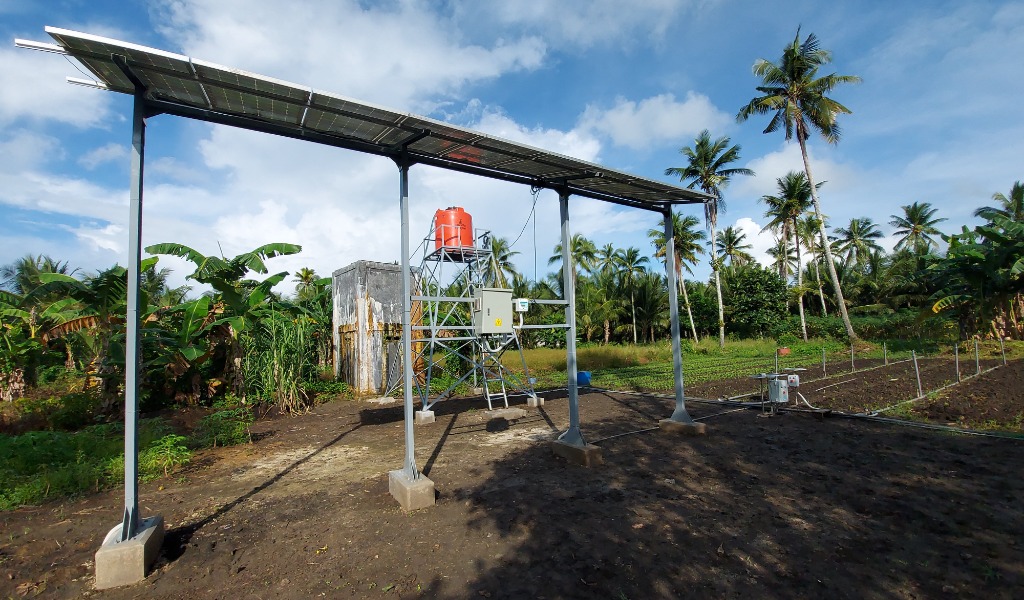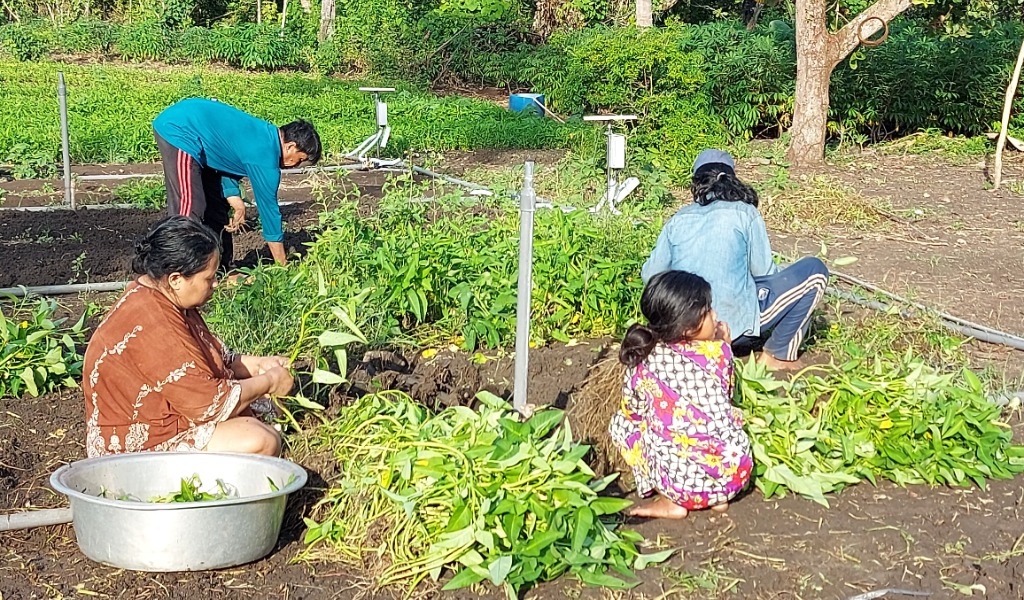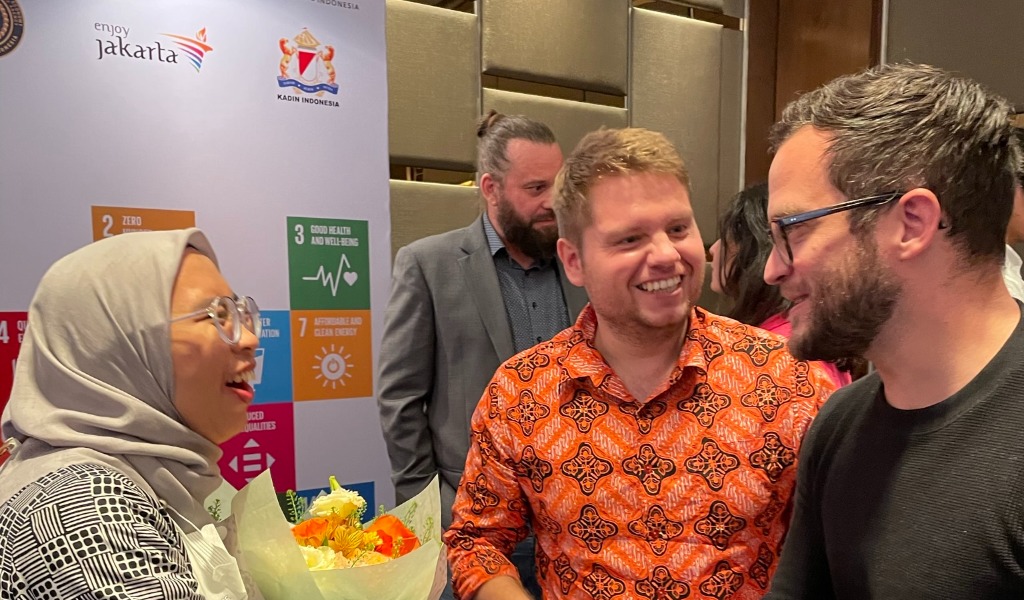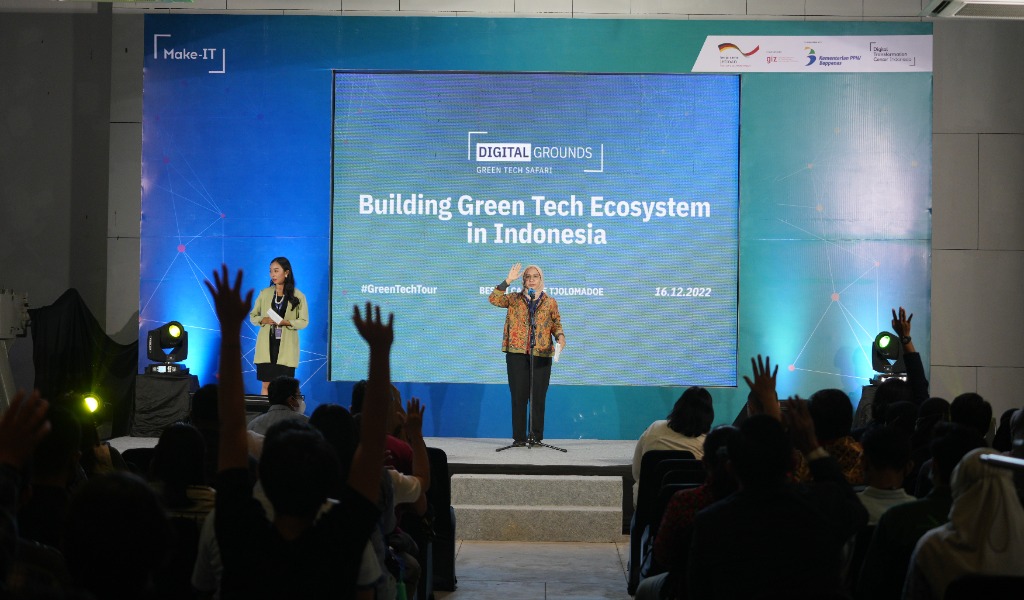DTC Indonesia: Global changes by local people
A WSA country feature in partnership with DTC Indonesia
Indonesia is an interesting country especially in the Asian context. As an emerging economy, it is part of the G20 and hosts the Secretariat of ASEAN. At the same time, it experiences massive problems with waste and the energizing of remote areas. The work of the Digital Transformation Center Indonesia financed by the BMZ and implemented by GIZ and the partnership with WSA – focusing primarily on digital transformation, green tech and green energy – can be understood as a response to existing problems.
While digital transformation is happening globally, it is important to think locally when evaluating impacts on changing environments. Locality also means integrating the people who will live with the solutions and know what works for them.
Flashback to the WSA Grand Jury Meeting in Jakarta in October 2022: as part of the cooperation between WSA and the DTC, Indonesian startups were invited to pitch their ideas and get feedback from the WSA Grand Jury.
The pitching event also provided a chance to talk with Atiek Fadhilah, working for GIZ Indonesia since 2011, with lots of experience not only in renewable energy, decentralized energy supply and mineral economics, but also in innovation acceleration and network building. Atiek highlights the importance of the local.

Solar-powered smart irrigation for small scale farmers in Wakatobi, South Sulawesi.
How about a short intro?
My name is Atiek Fadhilah. When I was studying industrial engineering and mineral economics, there was limited renewable energy or green tech education in Indonesia. My interests were sparked by exposure to a community that had only two days of electricity a week, while the region was producing natural gas. In general, Indonesia’s energy comes from coal or oil.
At the beginning, my work for GIZ focused on the development of rural electrification with renewable energy. Indonesia focuses on green technology and is a big player in the energy transition, so natural resource management is crucial, together with the use of clean energy and, of course, the circular economy. The Energising Development project lasted from 2009 to 2019, after that I continued to expand the use case.
So, these are the areas on which Germany and Indonesia will focus in the upcoming 4 years.
What projects are you currently working on?
We are doing a pilot project on Wakatobi, Sulawesi – an island where the coral reef is in good condition – where we focus on smart irrigation with renewable energy. We installed PV panels to power solar water pumps, thus saving 80% of the water used for agriculture. It is an excellent use case for smart, green irrigation on a small island. With the success of this solution, we are able to scale it to other small islands in Indonesia. Water is scarce and needs to be saved for food.
It is also a perfect example, especially in rural areas, for people in Indonesia to see the benefit of renewable energy for themselves daily. There is no sense in talking about transitioning energy without being there to make them see how the technology works. We centralize energy in small islands, touching the key activities of rural people, mainly agriculture.
We support improvements, but also the knowledge that is already there. For example, we try to find renewable energy for a desalination solution for East Nusa Tenggara. The solution is in Germany, the use case is in Indonesia. A lot of people already put effort into this novel technology; we try to scale it in the most needed places by using local companies and startups. GIZ helps with the improvements, but will not be there forever, so it’s more sustainable to work with locals.
If there is no technology on the market, we try to develop it or we adopt it from local startups. I dive into the world of startups within Make-IT projects along the way, we try to find solutions, software here or interface there, we meet many founders trying to iterate solutions.
This is where the Make-IT project gets relevant. Make-IT brings skills and knowledge to people exposed to real problems. When they can’t solve them, we bring in experts to support them.

Farmers harvesting water spinach in Wakatobi, South Sulawesi.
Over the last years you collected a lot of experience with startups and know the current pool. When you develop a solution for a new project, you know which startups to contact and can access the network…
That is exactly the aim of Make-IT.
People in remote areas have ideas and a strong desire for their realization. Being connected to other founders, with whom they share the journey, broadens their horizon. Through these interactions they build a network, get more exposure and support – and go back to their island to develop the solution. Peer experiences are important.
What DTC Indonesia and Make-IT are trying to achieve is more exposure for these communities, more communication among them, and better ways for our government to support them.
Renewable energy and green tech are finally on the upswing in Indonesia, previously it was a very lonely ecosystem. When I started, new structures were just being built by the government, and in meetings, the same individuals were always there. Now you meet lots of new people, new companies are coming, and these topics are being addressed in many work environments. When businesses endorse or get involved in government projects, they are exposed to new networks, becoming stronger and more sustainable.
What are the biggest challenges?
The biggest challenge in Indonesia is data. If you want improvement, you have to be able to measure it. The sheer dimensions of Indonesia are not represented in the data available. If we want to know about electrification status, the only data we have is from the government. But there are different levels of electrification, for example, as intensely as in Jakarta or, just limited to lighting lamps? In off grid areas that really need electricity, we also have no idea about people’s ability to pay.
If data is there, it will be easier for people to seek solutions, as they can be scaled and measured, so as to convince people to support them.
The other challenge is culture. Some solutions may be successful in one area, but not in another. Customs can be quite different, so people should invest in understanding these markets. This is why we want local people to innovate – they know the environment, know what works, seek the right tools and the right mentorship. They can definitely develop a better solution than if we bring a Jakarta solution into the area.

Atiek Fadhilah & Jonas Herzing (GIZ) with Connor Sattely
Atiek Puspa Fadhilah, Advisor for Business Innovation at Deutsche Gesellschaft für Internationale Zusammenarbeit (GIZ) GmbH, has 8+ years’ experience in expanding electricity access with renewable energy (solar and micro-hydro). She is currently facilitating public and private sector collaboration to accelerate innovation in new technology and decentralized energy supply.
